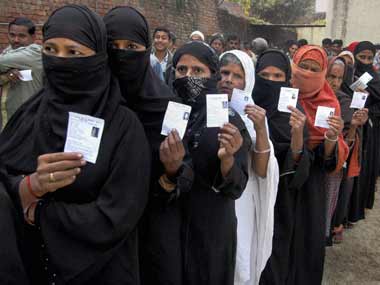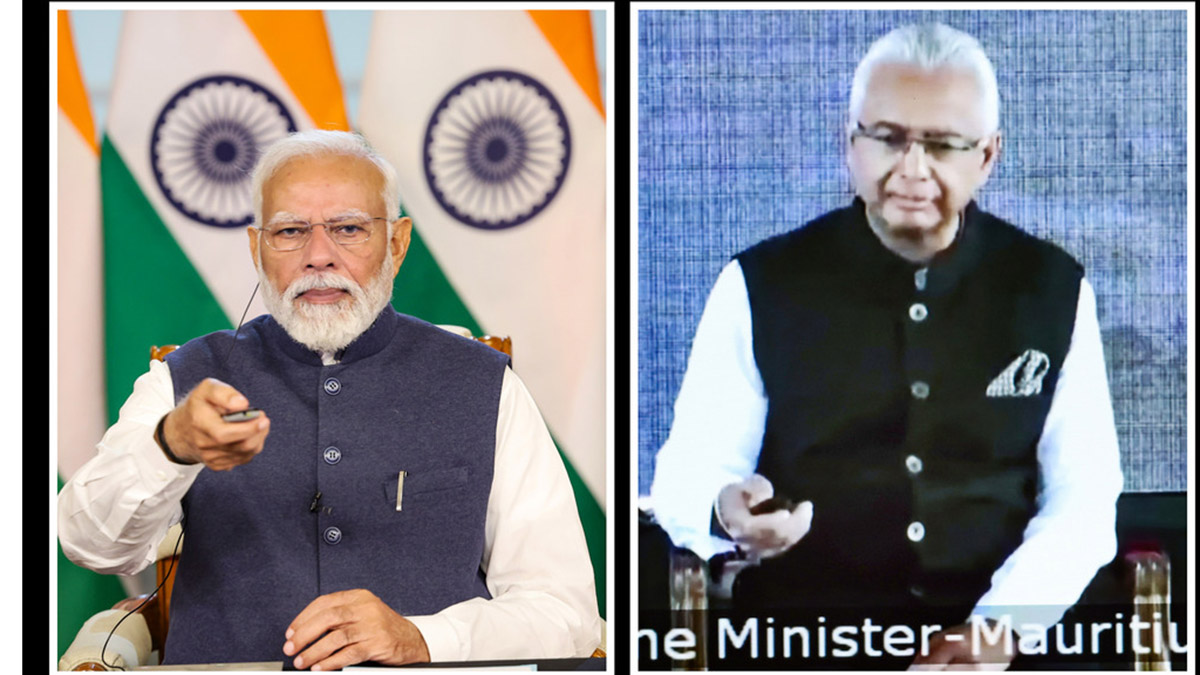The #UPelectionResults from #Deoband tell the story of the end of Mullah control over the 'Muslim Mind and Vote'. pic.twitter.com/QsZzDYhTDa
— Tarek Fatah (@TarekFatah) March 12, 2017
The Deoband narrative — how a city with an “80 percent Muslim population” voted BJP, indicating an overwhelming thumbs up for Prime Minister Narendra Modi’s ‘development’ agenda — continues to do the rounds of social media. While Tarek Fatah clearly jumped to a hasty conclusion early in the game, others are still retweeting his faulty assumption or adding their own theories based on erroneous information — this, even though the real picture has been clear for some time now.
The facts are as follows: Exultant fans have been mistaking Deoband city, which has a Muslim population of 71 percent (not 80 percent) for the Assembly constituency of Deoband, which is much larger. The 2011 Census data pegged the Hindu population in the constituency at over 60 percent; while recent Election Commission data says that of the 2,92,273 registered voters there, only 27 percent are Muslim. Equally pertinently, not only has Deoband elected BJP candidates twice in the distant past, but 90 percent of the candidates it has voted in over the years have been Hindu, regardless of the party.
The figures put out by the Election Commission — in the wake of counting — decisively ended the argument that Deoband Muslims en masse were won over by Modi: They showed how the BJP gained because of the splitting of the Muslim vote between Mulayam Singh Yadav’s Samajwadi Party and Mayawati’s Bahujan Samaj Party (BSP). The combined vote count of the Muslim candidates of the Samajwadi Party and BSP was 1,28,229, while the BJP winner, Brajesh, polled 1,02,244 votes — that is 25,985 votes less than the other two combined. If there had been a united front against the BJP, the party would have found the going far more difficult.
Psephology is a science of analysis and interpretation — a complex one at that — and the interpretations of political pundits naturally vary on what exactly happened in Uttar Pradesh. What happens on social media, on the other hand, is not even a layperson’s version of psephology — it’s mostly about opinions, sometimes wild ones, based on pre-conceived notions. The image most of us have of Deoband is the seminary from where a couple of notorious religious fundamentalists have emerged and whose only occupation seems to be issuing a non-stop stream of fatwas. Ergo, you hear ‘Deoband’ and construe this as a place which has only fire-breathing Muslim fundamentalists. And then think, “Wow, Modi won over all of these.”
Similar is the strong visual imagery that leads us to arrive at speedy conclusions — so a bunch of burkha-clad women in the BJP celebration rally strengthens the impression that the entire community is exulting about the victory. What is ignored, or perhaps is ignorance on the part of many, is the fact that these could be BJP workers (strategically displayed or otherwise) or women from the Rashtrawadi Muslim Mahila Sangh_,_ an RSS-affiliated organisation that has petitioned the Supreme Court on triple talaq. The fact is that the most aggressively Hindutvavadi parties have had Muslims in their ranks as well as in governance; from Sikander Bakth, cabinet minister in the Atal Bihari Vajpayee government, and Sabir Shaikh, labour minister in the Shiv Sena government in Maharashtra to younger Muslims like Haji Arafat Shaikh and Shazia Ilmi, Muslims have been part of the landscape of Hindu parties.
Yes, the Muslims who were in the celebratory march could also have voted BJP – in a state with a Muslim population of nearly four crore, it’s simplistic to assume that every vote was religion-based. However, a few swallows do not a summer make; and heartening though the idea of citizens voting for ‘development’ over narrow parameters such as religion or caste is, the analysis of the votes has shown otherwise. It is also necessary to add that though Modi did push the development agenda at poll meetings, there was also polarizing talk and combative statements, which were hardly conducive to winning over the Muslim community in its entirety.
One popular projection about the BJP victory — reiterated by Deoband’s winning candidate Brijesh in an interview – was that the party had won the support of its Muslim female constituents because of its uncompromising stand on triple talaq. While that is a specious statement on account of its being unverifiable, it will be interesting to see if the BJP actually takes up the issue with any seriousness. Political parties are not known for keeping their poll promises, especially sensitive ones that could upset the apple cart and endanger their throne – the promises are just eternally regurgitated and eternally swallowed by amnesiac voters.
Around 18 years ago, a unit of the Bajrang Dal headed by a man called Shankar Gaikar launched an agitation in Mumbai against the morning azaan from mosques, which violated the noise pollution rules. The noise pollution from Hindu festivals had been somewhat reined in by then but azaans continued unhindered. When I spoke to Gaikar, he told me that if the government did not apply the rules equally, his party members would personally climb atop the mosques and remove the loudspeakers.
Which was the party ruling Maharashtra at that time? Not the Congress, known for its pussyfooting around minority issues for political gain — it was the Shiv Sena-BJP, which, before the elections, had breathed fire and brimstone about all such concerns. I remember its aggressive stand on Muslim devotees taking up space on public roads for namaaz and inconveniencing people; during the Mumbai riots, it had even held public ‘maha aartis’ to counter the practice of public namaaz. After its unexpected electoral victory, however, it sought to resolve this issue “amicably” with talk of extra FSI to mosques; and eventually the political hot potato was quietly dropped.
After Gaikar’s announcement of his intention to do what he thought the Shiv Sena should have done, I called the then chief minister Narayan Rane for his response. “What they’re doing is not right,” Rane told me sagely, “One must learn to adjust.” Or words to that effect. But I won’t say I was gobsmacked — that’s the way the wind blows with politicians.
Which is why many take the BJP’s poll promise to act against instantaneous triple talaq with a pinch of salt.
While it has made the right noises about the foul and discriminatory practice, supporting it in the ongoing Supreme Court case and even promising to consider a ban on it after the Uttar Pradesh polls, what really stopped its various governments over the years from turning an alleged stand into legislation? Similarly the contentious issue of a Uniform Civil Code has been peddled by state and Central BJP governments for years — its latest avatar was in the 2014 BJP manifesto — without ever getting their feet wet.
Following the sweeping victory in Uttar Pradesh (which, it is clear by now, was a consolidation of the Hindu vote rather than the Muslim community’s acceptance of Modi’s ‘development agenda’), it remains to be seen whether the BJP will still do its duty by its female Muslim citizens and pursue the triple talaq issue with vigour. Or whether it will now be bundled into the next manifesto. One hopes it is not the latter.
The author is a senior freelance writer and editor


)




)
)
)
)
)
)
)
)